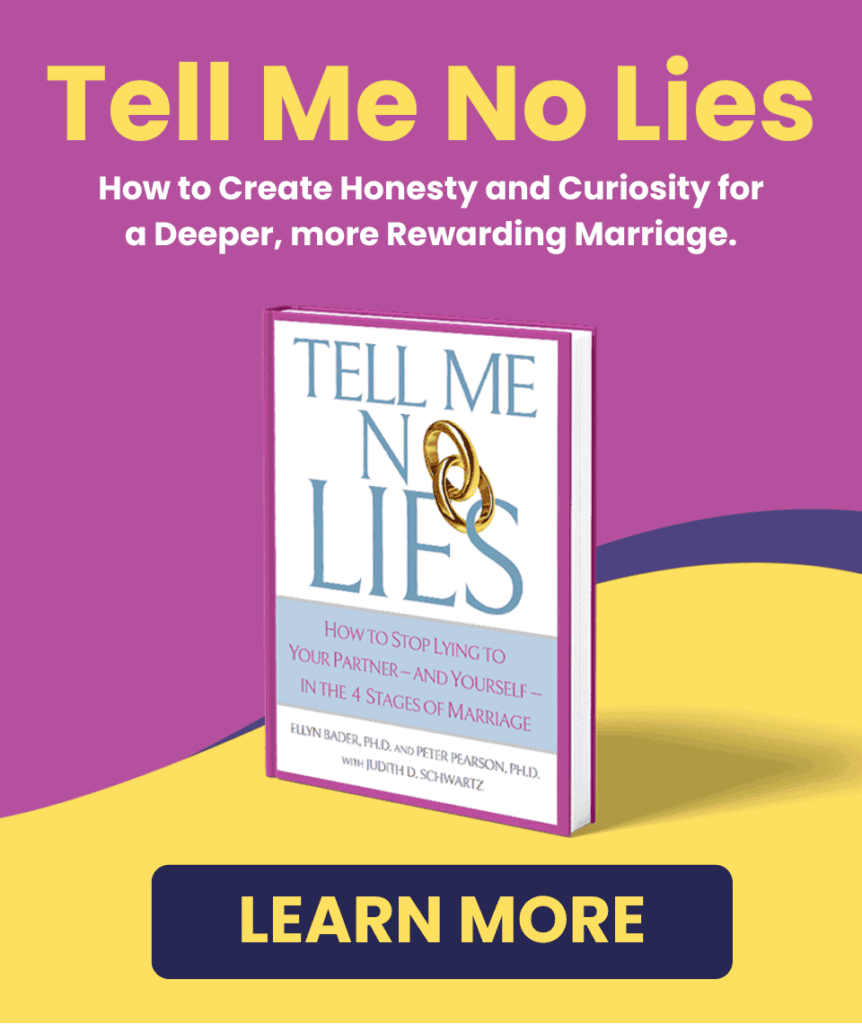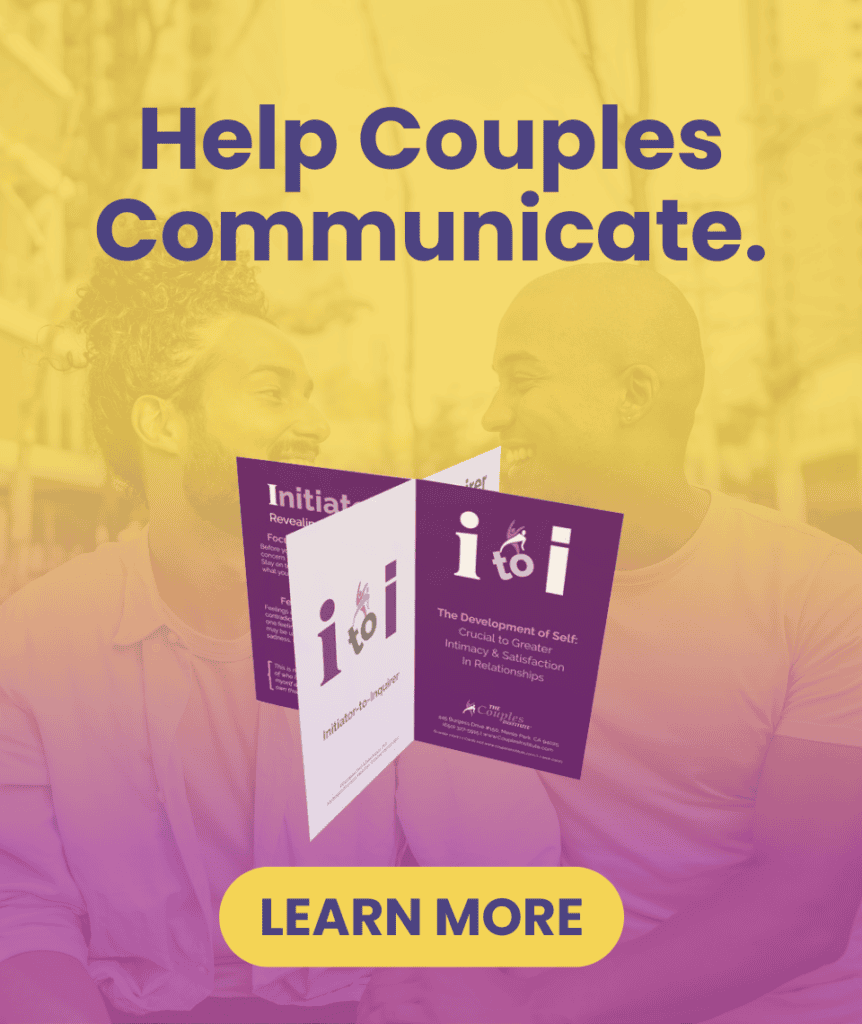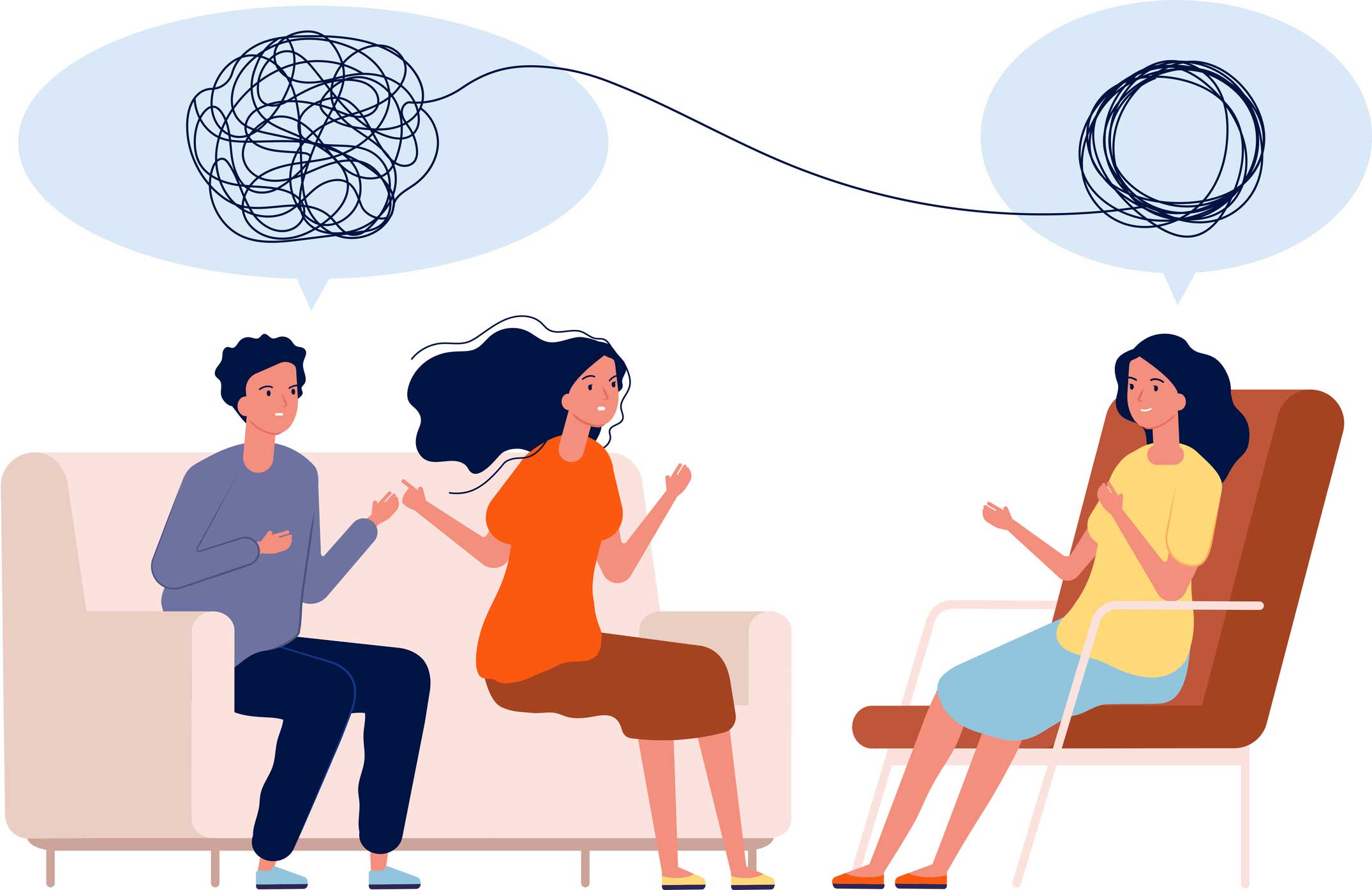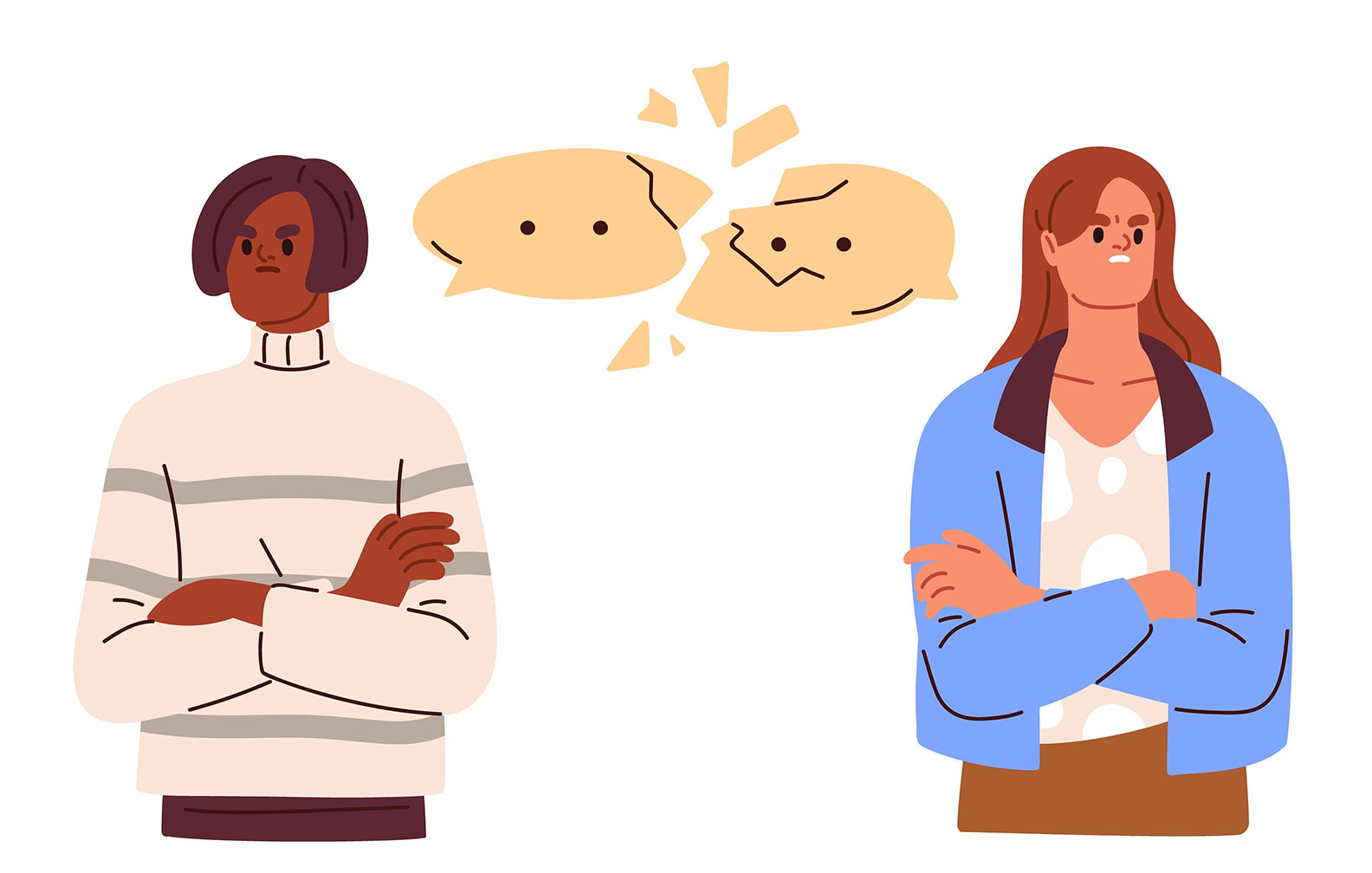The biggest obstacle for all marriages is the desire to feel better.
That's right. What gets in your way, my way and everybody else's way of a growing marriage is the human instinct to feel better when distressed.
Here's what I mean. In any disagreement or with any annoying problem, each of you has a strong desire to get relief as soon as possible. It is wired into our brain as part of evolutionary survival.
Feeling better is what we strive for when we negotiate, solve problems, or try to be understood.
We want to get relief as efficiently and as easily as possible. This is also part of our evolutionary heritage. It's part of our biological makeup. We want to make as little effort as possible to conserve energy for any possible future emergency.
If you can get someone else to make a change to help you feel better, then you have achieved a major survival goal.
The compelling desire to feel better shows up in any conflict. Consider any repeating argument and you will find the same common denominator. Basically each person is telling the other how to behave or what to feel or think. If the other person would just do what we are “suggesting” they do, life would be good again because we would then feel better.
Now you can see the problem; each person is telling the other how to behave. And most folks don't like being told how to behave. We get enough of that from our families, schools, church, bosses, etc. The race is on to see who can get the other to change first – to feel better faster.
Over time, each partner accumulates compelling evidence about why the other person needs to make some serious adjustments. The stage is now set for classic gridlock.
So if feeling better is instinctive but not the solution, then what is the answer?
Instead of trying to feel better, how about aiming to get better?
“Getting better” means improving your response to a difficult problem or situation.
“Getting better” means growing as a partner and as a human.
For example, for some people this will mean being a better advocate for yourself, for others it will mean being more understanding and empathic about your partner's distress.
But getting better means we will need to exert ourselves. Again and again. And in areas we really don't have a high desire to improve. Ugh. This is the core of what happens when marriages struggle.
If you are willing to try an experiment in “getting better” and see an immediate result, try the following approach.
The rule is simple. During the next argument, you can say anything you want EXCEPT telling your partner how to behave.
The old approach might sound like this, “I'm tired of your not pulling your weight around here. I didn't get married to have a child as a partner. The free ride is over. From now on, you're going to do your share or there is big trouble.”
You can see the limitations of this approach.
Try this instead. “When you follow through with what you say you are going to do, my respect for you increases and I feel like we are a better team going through life together.”
Now here is the kicker. Stop discussing the problem after making that statement. Otherwise you will just lose the goodwill you created by describing the problem this way.
You are not telling your partner what to do! Instead you are describing the effect on you when they do something you appreciate. This approach tends to stop arguments in their tracks.
The basic formula for this process is to describe the effect on you when your partner does something you like, appreciate or respect. And then drop it.
If you want to be even more influential, make your statement with a friendly voice tone and a gentle facial expression. Amazingly, if you relax the muscles in your face and especially around your eyes when you talk, (no squinting) your attitude will become nicer with less effort.
If you want a radical way of improving your relationship in a hurry by getting better – this is it. It's not easy. It's not effortless. It may not be enjoyable. It is just effective as heck.
Another new tool for improving your relationship is a process Ellyn and I taught in a recent teleseminar. It teaches you how to repair your relationship when you feel stung by something your partner did or said. It's now available as a downloadable audio MP3 and also as a downloadable transcript. If you're interested in finding out more about this technique visit
Soothing Moments: Rapid Relationship Repair.



 We respect your privacy.
We respect your privacy.

